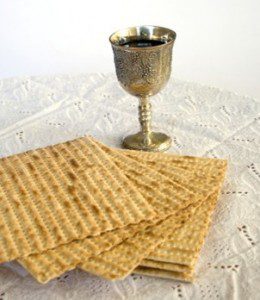 Print this Article
Print this Article

By Rabbi Ariel Ovadia
The question of the Rasha in the Haggada is packed with cynicism: “מה העבודה הזאת לכם” – “What is this work unto you?” The Ritva, Shibbole HaLeket and others understand that the Rasha is mocking the Mitzvot of Pessah by distancing himself from what he refers to as “work”. Our answer is equally hard-hitting, accusing the Rasha of heresy and declaring that had he been in Mitzrayim he would not have been saved.
The commentaries are baffled as to why the Haggada chose to give a different answer than that of the Torah. Faced with this question, the Torah tells us: “ואמרתם, זבח פסח הוא לה’, אשר פסח על בתי בני ישראל ואת בתינו הציל” – “and you shall say, this is a Korban Pessah to Hashem, who skipped over the homes of Bene Yisrael and delivered our families”. We must also understand why the Torah relates – following this answer – that the nation bowed in gratitude before Hashem.
Perhaps, the explanation lies in what leads the Rasha to feel that Pessah is a burden. The Hovot HaLevavot bases his work on the premise that one must serve HaKadosh Baruch Hu out of a deep sense of gratitude for the magnificent world He has created for us and the life He has given us. This is especially true with regards to Am Yisrael who have been the recipients of Hashem’s kindness from the days of our forefathers, followed by Yetzi’at Mitzrayim, the Midbar and the myriad of miracles which ensure our existence each and every day. A nation that truly appreciates the good that Hashem has bestowed upon them, feels privileged to be able to serve Him and sees all of the Mitzvot as an opportunity to reciprocate Hashem’s love for His people. The Rasha who does not feel this way, comes to view Pessah as a drain and excludes himself from Am Yisrael’s collective conscience. Such ingratitude would have excluded him from the exodus, and the response the Torah gives to his question is the reassertion – to ourselves – of our deep appreciation of Hashem’s goodness, followed by the nation’s bow of gratitude before G-d. As we approach Pessah, let us remember what great privilege it is to be able to serve Hashem and perform each Mitzva out of gratitude and love.